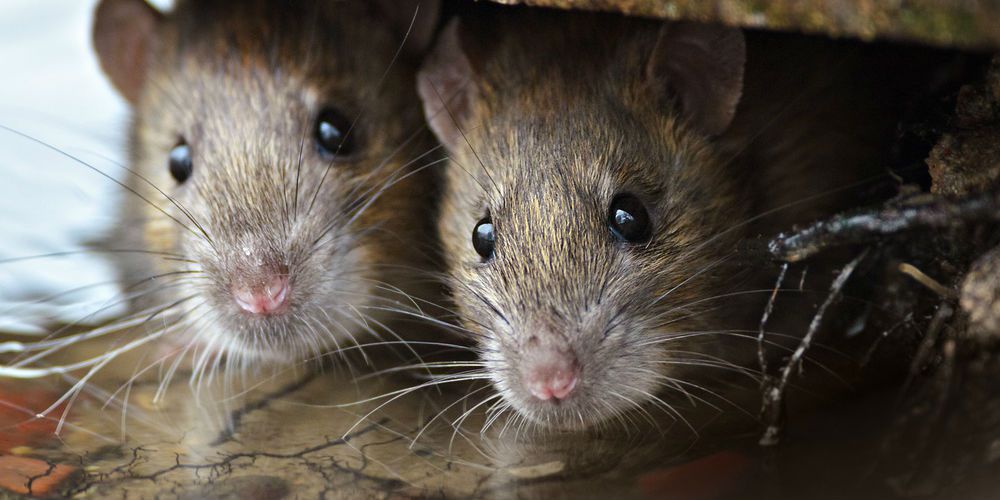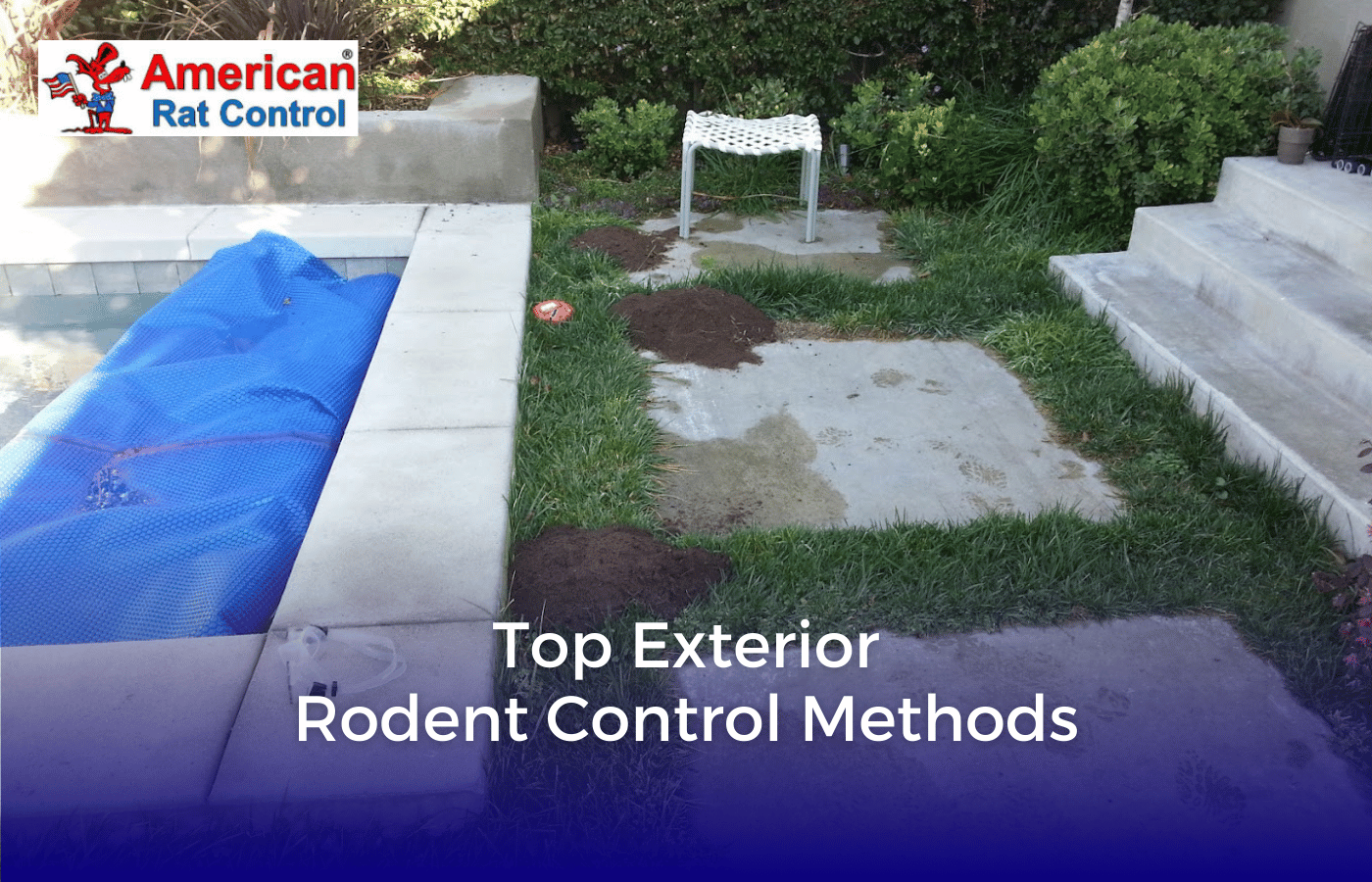If you’re facing a rat infestation, you may have considered eliminating this issue yourself. Whether it’s your confidence or a story from someone you know where DIY rat control went well, there are several reasons why someone might think that this is a good idea for them. However, what you have to keep in mind is that most often, these do-it-yourself attempts will fail.
There is a whole variety of things that can go wrong and mistakes that can be made during the DIY rat infestation removal process. For example, most DIY traps or bait won’t work. Additionally, rodent infestations rarely come from one specific source. There’s most likely a deeper problem that isn’t being handled. In simpler words, even if you patch up a hole from which you notice rats coming, there’s a chance they’ll appear again very soon from another area in your home. Let’s inspect more closely why doing rat removal yourself is a bad idea and what you should do instead.
Prevention is better than treatment
Before we start discussing all the reasons why DIY-ing rat removal is a bad idea, let’s discuss a good idea – rat infestation prevention. While it is nearly impossible to properly stop a rat infestation in your home once it has started, there are things you can do on your own to keep rats from even reaching your home. These would include:
Keeping the house clean
Reducing excess moisture collection
Maintaining and cleaning your yard
Blocking easy entryways
It’s not just your home you have to worry about
Something that you have to remember when it comes to rat infestation prevention is that it shouldn’t be limited to your home. Whether you have a shed or garage or keep your things in a unit within a storage facility, you have to make sure every property you own/rent is well-protected. Let’s take the storage unit as an example. If you’re renting one out to keep valuables in a safer spot, you have to make sure it’s pest-free. You can pest-proof a storage unit in ways other than the ones described above. For example, you can use plastic containers and better wrapping in the storage unit. Additionally, you can pair that with installing rat deterrents. The point is that you have to protect everything, and different types of property could require different types of prevention.
It’s a waste of time, money, and energy
The first reason DIY rat control is a bad idea, which we will be discussing in detail, is that it’s quite simply a waste of resources. Even if you do your best to create an accurate budget and timeline for this project, chances are you’ll quickly realize how much more money and time it’ll take than you anticipated. If your first treatment method or product fails to get the job done, chances are you will be inclined to try again with something else out of frustration. And it’s common for this to turn into a repetitive cycle where most homeowners end up hiring professional pest control companies anyway. Additionally, most of these DIY rodent control products require re-application, so you might be heading toward spending a lot of money on them without even realizing it right away.
You may be exposing yourself to diseases
Just by existing in your house, rats pose several health risks. They often transmit pathogens that can be seriously damaging or, in certain cases, even deadly for people. Without proper training and knowledge, you only expose yourself to those things further by attempting to DIY your rat control. If you don’t know how to protect yourself properly, simple contact with the rat or things like its droppings, urine, and other body fluids can make you and your family members get sick. While treatments for most of these diseases are available and easily accessible, there’s no reason to subject yourself or anyone else to that kind of issue.
A DIY rat control attempt might also put your pet at risk
Aside from you and your human family, one more inhabitant of your home could be put in danger during a DIY attempt at rat control – your pet. While your kids, your partner, and you might be able to discern poisonous rat bait from food, your furry friends likely won’t be. Certain rodent poisons are potent enough to seriously harm or even kill your pet if they consume them.
Even if you’re not using poisons and your alternative DIY rat removal solution seems safe for larger pets, you might also regret that. This is because the noses and paws of your pets are extremely sensitive. So any stronger smells or small physical traps can harm them.
It leaves the source of the issue untreated
Perhaps the biggest reason why DIY rat control is not sufficient is the fact that it usually only treats the symptom of your infestation and not the actual cause. In most cases, these traps, baits, and poisons will do the job of exterminating the few rats you notice roaming around your home. However, unlike pest control professionals, these DIY gadgets won’t discern the exact problem or where it’s coming from. Nor will they be able to treat these fundamental issues. This means you might have an entire rat’s nest in a crawlspace or your basement without even realizing it. This means that rats might reappear a few weeks after you think had solved your issue.
There’s a better way
As we’ve seen throughout this article, various issues come with DIY-ing rat removal that most people don’t consider right away. From the fact that they commonly get out of hand in terms of resources to the fact that they are dangerous for everyone in your home, and most importantly, the fact that they are usually not even effective at treating the main source of the problem.
At the end of the day, the best way to get rid of pests in your home fast is to get a pest control company to handle it. They offer a much easier way to solve your rat issue once and for all than DIY rat control ever could. With the proper equipment for both extermination and prevention and the knowledge necessary to resolve the core issue at hand, professionals can get rid of your rat infestation problem in one fell swoop. Although as a final tip, we would still like to remind you of the importance of proper rat infestation prevention. After professional exterminators have resolved your problem, you can consult them on possible ways to stop this from ever happening again.







